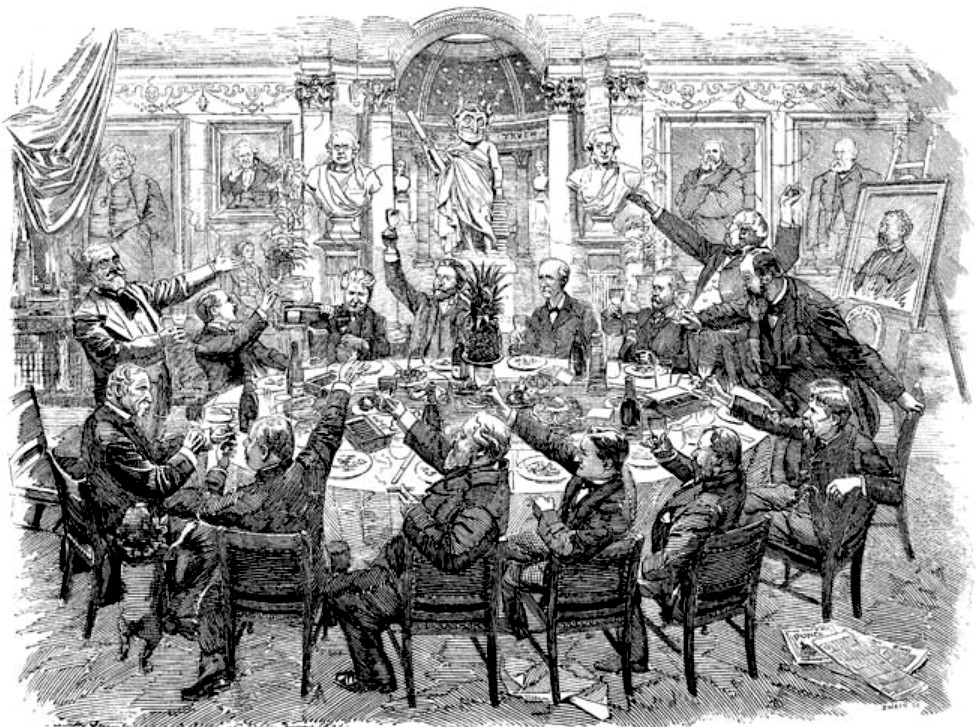The following is the fourth of several extracts from the author's "A Comic Empire: The Global Expansion of Punch as a Model Publication, 1841-1936," originally published in the International Journal of Comic Art 15/2 (Fall 2013): 6-35. We are grateful to Professor Scully for allowing us to reprint some passages from it here. The image in this part comes from our own website. Please click on it to enlarge it, and to see the introductory article to Punch from which it comes — also to find its bibliographical details. — Jacqueline Banerjee

The Punch Table: Linley Sambourne's "The Mahogany Tree."
[T]he colonial Charivaris very much more dependent upon local conditions than any imperial control exerted by the metropolis. ln fact, each colonial imitator of Punch was just that: an imitator. The London paper had virtually no input whatsoever into the establishment, dayto- day management, or content of a paper like Punch in Canada. Occasional requests to reprint Punch cartoons or articles aside, the imperial metropole dealt with its "colonies" in a highly laissezfaire, liberal fashion. The empire of Punch was therefore an example of a fascinatingly complementary (and often paradoxical) imperial system: Punch's spread worldwide is a reflection of the spread ofBritish economic, political, military, and cultural influence, but was also a means by which that same system was established and perpetuated. It was very much an "informal" empire, where influence was exerted without hands-on control. The London Charivari provided the original inspiration in terms of format and general style, but those sitting around the Punch table at a Wednesday editorial dinner were usually blissfully unaware of their counterparts' machinations in far-flung China or Japan, and one can perhaps imagine them affecting to laugh, shake their heads in bemusement, and raise a sarcastic eyebrow if ever they encountered a copy of a colonial Charivari.
Related Material
- 1. Punch's Colonial and other imitators
- 2. Regional and American imitators of Punch
- 3. Maintaining British Identity Abroad through Punch
- 5. An Indian Punch
Bibliography
Holdridge, Christopher Arthur. "Sam Sly's African Journal and the Role of Satire in Colonial British Identity at the Cape of Good Hope, c.l840- 1850." Unpublished MA thesis, 2010. Cape Town: Faculty of Humanities, University of Cape Town.
Khanduri, Ritu G. 2009. "Vernacular Punches: Cartoons and Politics in Colonial India." History and Anthropology. 20/4 (December 2009): 459-486.
Miller, Henry J. "John Leech and the Shaping of the Victorian Cartoon: The Context of Respectability." Victorian Periodicals Review. 42/3 (Fall 2009): 267-291.
Created 15 August 2019